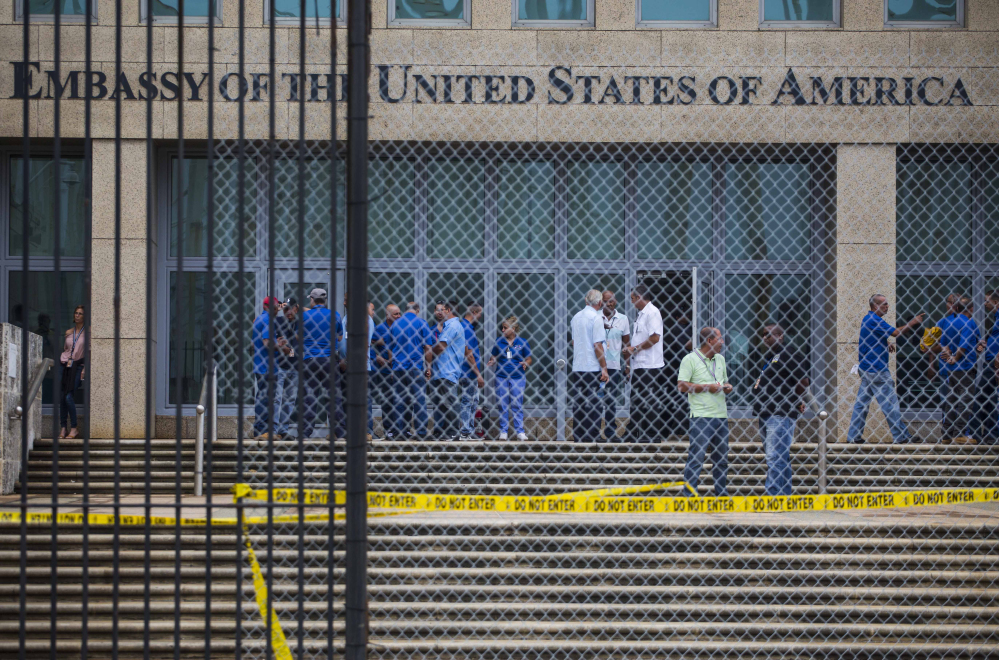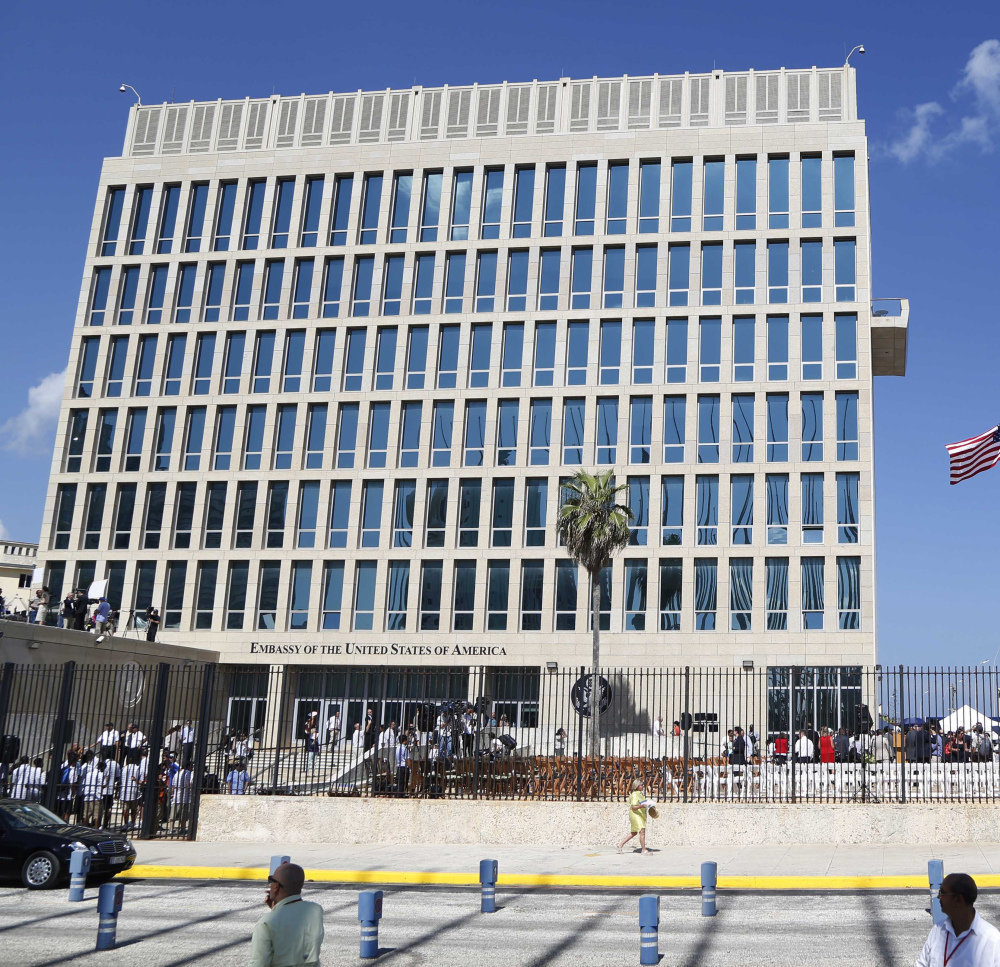HAVANA — Frightening attacks on U.S. personnel in Havana struck the heart of America’s spy network in Cuba, with intelligence operatives among the first and most severely affected victims, The Associated Press has learned.
It wasn’t until U.S. spies, posted to the embassy under diplomatic cover, reported hearing bizarre sounds and experiencing even stranger physical effects that the United States realized something was wrong, individuals familiar with the situation said.
While the attacks started within days of President Trump’s surprise election in November, the precise timeline remains unclear, including whether intelligence officers were the first victims hit or merely the first victims to report it. The U.S. has called the situation “ongoing.”
To date, the Trump administration largely has described the 21 victims as U.S. embassy personnel or “members of the diplomatic community.” That description suggested only bona fide diplomats and their family members were struck, with no logical motivation beyond disrupting U.S.-Cuban relations.
Behind the scenes, though, investigators immediately started searching for explanations in the darker, rougher world of spycraft and counterespionage, given that so many of the first reported cases involved intelligence workers posted to the U.S. embassy. That revelation, confirmed to the AP by a half-dozen officials, adds yet another element of mystery to a yearlong saga that the Trump administration says may not be over.
The State Department and the CIA declined to comment for this story.
The first disturbing reports of piercing, high-pitched noises and inexplicable ailments pointed to someone deliberately targeting the U.S. government’s intelligence network on the communist-run island, in what seemed like a bone-chilling escalation of the tit-for-tat spy games that Washington and Havana have waged over the last half century.
But the U.S. soon discovered that actual diplomats at the embassy had also been hit by similar attacks, officials said, further confounding the search for a culprit and a motive.
Of the 21 confirmed cases, American spies suffered some of the most acute damage, including brain injury and hearing loss that has not healed, said several U.S. officials who weren’t authorized to speak publicly on the investigation and demanded anonymity. They heard an unsettling sound inside and in some cases outside their Havana homes, described as similar to loud crickets. Then they fell ill.
Over time, the attacks seemed to evolve.
In many of the more recent cases, victims didn’t hear noises and weren’t aware an attack was occurring, identifying the symptoms only later. That has raised concerns among investigators that the attacks may be getting more sophisticated and harder to detect, individuals briefed on the investigation said.
Eleven months on, the U.S. cannot guarantee the threat is over. Last week, the State Department warned Americans to stay away from Cuba and ordered more than half the embassy staff to leave indefinitely.
But the U.S. has not identified whatever device is responsible for the harm. FBI sweeps have turned up nothing.
The most obvious motive for attacking Americans in Havana would be to drive a wedge between the U.S. and Cuba. If that’s the case, the strategy appears to be succeeding.
Last week’s embassy drawdown added to the growing friction between the nations. And an accompanying new travel warning deemed Havana’s hotels unsafe for visitors, threatening to drive down tourism, a backbone of Cuba’s economy.
Copy the Story LinkSend questions/comments to the editors.




Success. Please wait for the page to reload. If the page does not reload within 5 seconds, please refresh the page.
Enter your email and password to access comments.
Hi, to comment on stories you must . This profile is in addition to your subscription and website login.
Already have a commenting profile? .
Invalid username/password.
Please check your email to confirm and complete your registration.
Only subscribers are eligible to post comments. Please subscribe or login first for digital access. Here’s why.
Use the form below to reset your password. When you've submitted your account email, we will send an email with a reset code.